

Substance use remains a pressing issue in Columbia and the surrounding areas of Adair County. Like much of rural Kentucky, this region has felt the impact of the opioid crisis firsthand, with overdose rates and drug-related hospitalizations continuing to challenge the local healthcare system.
Methamphetamine use has also been on the rise. Alcohol misuse—though sometimes overlooked—continues to cause harm in the form of DUIs, domestic issues, and chronic health conditions.
What makes addiction even more complex in Columbia is the growing number of individuals facing both substance use and mental health conditions at the same time.
Depression, PTSD, and anxiety often co-occur with addiction, making recovery more difficult without the right support. This is known as a dual diagnosis, and it requires integrated treatment for both conditions.
The ripple effects of addiction are felt far beyond the individual. Families are stretched thin, schools struggle to support impacted youth, and law enforcement and emergency responders face increased demand.
Fortunately, a growing network of resources—including professional rehab programs and community-based support—is available to help. For those searching for Columbia drug rehab options, compassionate and effective care is within reach.
Recovery doesn’t happen in isolation—it takes a strong community and accessible support systems to make healing possible. In Columbia, a variety of local resources work alongside alcohol & drug rehabs near Columbia, KY to help individuals rebuild their lives.
In Columbia, local systems are shifting toward support instead of punishment when it comes to addiction.
The Columbia Police Department is part of that shift—officers are often the first to respond when someone is in crisis, and many now focus on connecting individuals to treatment, rather than arresting them outright. It reflects the growing recognition that addiction is a health issue—and recovery begins with access to the right kind of help.
The Adair County Court system also plays a vital role. For individuals facing substance-related charges, the court offers alternatives to incarceration, including drug court and pretrial diversion under Kentucky’s Specialty Courts initiative.
Safe, stable housing can make all the difference in early recovery—and in Columbia, the Housing Authority helps provide just that. With access to affordable public housing and sober living options, individuals working toward sobriety can focus on healing without the ongoing stress of unstable living environments. Affordable Housing Columbia, KY Recovery Housing Network, Kentucky Association of Recovery Residences.
Recovery isn’t just about quitting substances—it’s about rebuilding life with structure, safety, and support. Columbia’s commitment to housing support offers a true foundation for long-term change.
Veterans in Columbia face trauma, PTSD, and challenges adapting to civilian life—all of which can complicate recovery. Local resources offer veteran-specific support, including trauma-informed counseling and help navigating VA benefits, so veterans can access personalized care that honors their service and fosters long-term healing.
Sobriety isn’t something you do alone. In Columbia, peer support groups offer a place to connect, share honestly, and lean on others who’ve been there too.
No matter where you are in your recovery journey, these groups offer connection and compassion—reminding everyone in Columbia that they’re not walking this path alone.
Complementing local peer support, Lexington Addiction Center offers structured clinical care for those needing more intensive treatment. Their programs are grounded in evidence-based practice and tailored to each person’s life circumstances.
Many individuals facing addiction in Columbia are also dealing with mental health issues like depression, anxiety, bipolar disorder, or PTSD. Lexington Addiction Center provides dual diagnosis care, addressing both addiction and mental health together for better outcomes.
The center offers outpatient care including Partial Hospitalization (PHP), Intensive Outpatient (IOP), and standard Outpatient (OP) options—ideal for working professionals, students, or parents who need structured support while maintaining daily responsibilities.
Recovery doesn’t stop at sobriety. Lexington Addiction Center emphasizes whole-person healing, including emotional regulation, relapse prevention, and life skills development. Family therapy and support with sober living planning ensure a well-rounded approach to long-term recovery.
If you or a loved one is struggling with substance use, know that help is available—and recovery is possible. Lexington Addiction Center offers compassionate, evidence-based care with dual diagnosis support and customized plans.
Click here for a free, confidential insurance verification, or contact the admissions team to begin the process today. Recovery starts with one decision—take that first step now.
Columbia, KY offers a range of addiction treatment services, including outpatient care, detox programs, and inpatient treatment. For those needing structured support, Lexington Addiction Center provides comprehensive treatment plans tailored to individuals struggling with substance use and co-occurring mental health disorders.
Dual diagnosis treatment addresses both substance use and mental health conditions like anxiety, depression, or PTSD. Without treating both, recovery is often short-lived. Lexington Addiction Center’s dual diagnosis programs use evidence-based therapies like CBT and DBT to support long-term healing.
Yes, Lexington Addiction Center offers multiple outpatient levels of care, including Partial Hospitalization (PHP), Intensive Outpatient (IOP), and standard outpatient services—ideal for individuals who need flexibility while maintaining responsibilities at work or home.
Yes, the local Housing Authority in Columbia provides sober living options and stable housing support, which are vital for individuals rebuilding their lives in recovery. Lexington Addiction Center also offers sober housing planning as part of their aftercare services.
Veterans can access trauma-informed addiction care, help with VA benefits, and community support. Lexington Addiction Center’s veteran rehab resources are tailored to address PTSD and service-related challenges that often co-occur with addiction.
Yes, Columbia hosts regular Alcoholics Anonymous (AA) and Narcotics Anonymous (NA) meetings. Additionally, SMART Recovery groups provide a science-backed alternative for those who prefer self-directed recovery strategies.
Al-Anon and Alateen provide safe spaces for spouses, parents, and teens affected by addiction. These meetings help families set healthy boundaries and find emotional support while navigating recovery together.
Lexington Addiction Center offers free and confidential insurance verification to help you understand your coverage. Their team works closely with clients to make treatment accessible without adding financial stress.
Absolutely. Outpatient options at Lexington Addiction Center allow clients to maintain their daily responsibilities while receiving comprehensive care for substance use and mental health challenges.
The first step is reaching out. Contact Lexington Addiction Center for a free consultation or insurance check. Their compassionate team will walk you through the treatment process and create a plan that fits your needs.
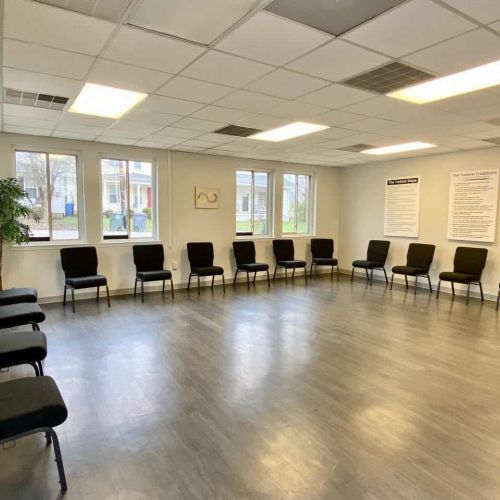





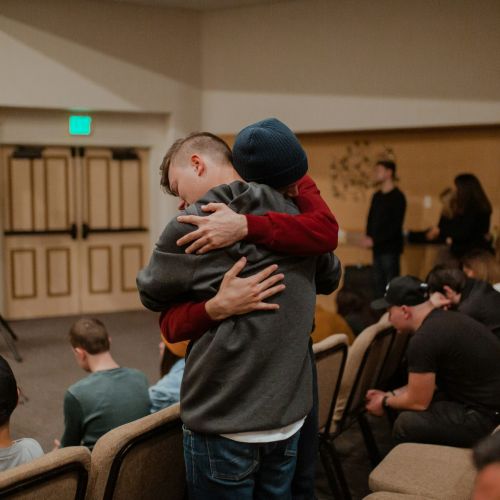

Get Family Support Now
We understand addiction affects the whole family. Our comprehensive family program helps rebuild trust and restore relationships.
Weekly Family Therapy Sessions
Educational Workshops
Support Groups
Communication Skills Training

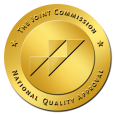



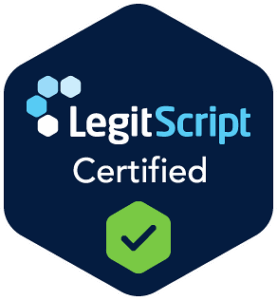
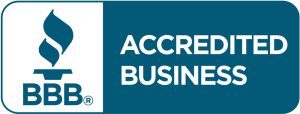



Connery, H. S. (2015). Medication-assisted treatment of opioid use disorder: Review of the evidence and future directions. Harvard Review of Psychiatry, 23(2), 63-75. https://pmc.ncbi.nlm.nih.gov/articles/PMC9772240/
Columbia Police Department. (n.d.). https://www.columbiapd.org/
Kentucky Court of Justice. (n.d.). Drug court. https://www.kycourts.gov/Court-Programs/Specialty-Courts/Pages/Drug-Court.aspx
Kentucky Court of Justice. (n.d.). Specialty courts. https://www.kycourts.gov/Court-Programs/Specialty-Courts/Pages/default.aspx
Affordable Housing Online. (n.d.). Housing Authority of Columbia. https://affordablehousingonline.com/housing-authority/Kentucky/Housing-Authority-of-Columbia/KY064
Kentucky Department for Behavioral Health, Developmental and Intellectual Disabilities. (n.d.). Kentucky Recovery Housing Network. https://dbhdidtest.ky.gov/sud/krhn
Kentucky Association of Recovery Residences. (n.d.). https://kyarr.org/
U.S. Department of Veterans Affairs. (n.d.). https://www.va.gov/
Alcoholics Anonymous. (n.d.). Find AA. https://www.aa.org/find-aa
Narcotics Anonymous. (n.d.). Meeting search. https://www.na.org/meetingsearch/
SMART Recovery. (n.d.). https://smartrecovery.org/
Al-Anon Family Groups. (n.d.). Find an Al-Anon meeting. https://al-anon.org/al-anon-meetings/find-an-al-anon-meeting/
Rigg, K. K., & Monnat, S. M. (2015). Urban vs. rural differences in prescription opioid misuse among adults in the United States: Informing region specific drug policies and interventions. International Journal of Drug Policy, 26(5), 484-491. https://doi.org/10.1016/j.drugpo.2014.10.001
Centers for Disease Control and Prevention. (2024). Understanding the opioid overdose epidemic. https://www.cdc.gov/opioids/basics/epidemic.html
National Institute on Drug Abuse. (2023). Methamphetamine research report. https://nida.nih.gov/publications/research-reports/methamphetamine
Substance Abuse and Mental Health Services Administration. (2021). Key substance use and mental health indicators in the United States: Results from the 2020 National Survey on Drug Use and Health (HHS Publication No. PEP21-07-01-003). https://www.samhsa.gov/data/
National Institute on Alcohol Abuse and Alcoholism. (2023). Alcohol facts and statistics. https://www.niaaa.nih.gov/publications/brochures-and-fact-sheets/alcohol-facts-and-statistics
Esser, M. B., Sherk, A., Liu, Y., et al. (2020). Deaths and years of potential life lost from excessive alcohol use — United States, 2011–2015. Morbidity and Mortality Weekly Report, 69(39), 1428-1433. https://doi.org/10.15585/mmwr.mm6939a6
Substance Abuse and Mental Health Services Administration. (2020). Treatment for co-occurring disorders. SAMHSA Publication No. PEP20-06-04-001. https://store.samhsa.gov/product/treatment-co-occurring-disorders/pep20-06-04-001
Drake, R. E., O’Neal, E. L., & Wallach, M. A. (2008). A systematic review of psychosocial research on psychosocial interventions for people with co-occurring severe mental and substance use disorders. Journal of Substance Abuse Treatment, 34(1), 123-138. https://doi.org/10.1016/j.jsat.2007.01.011
McHugh, R. K., Hearon, B. A., & Otto, M. W. (2010). Cognitive behavioral therapy for substance use disorders. Psychiatric Clinics of North America, 33(3), 511-525. https://doi.org/10.1016/j.psc.2010.04.012
Linehan, M. M., Dimeff, L. A., Reynolds, S. K., et al. (2002). Dialectical behavior therapy versus comprehensive validation therapy plus 12-step for the treatment of opioid dependent women meeting criteria for borderline personality disorder. Drug and Alcohol Dependence, 67(1), 13-26. https://doi.org/10.1016/S0376-8716(02)00011-X
Police Executive Research Forum. (2016). Building successful partnerships between law enforcement and public health agencies to address opioid use. https://www.policeforum.org/assets/opioids.pdf
Substance Abuse and Mental Health Services Administration. (2019). Law enforcement-behavioral health partnership strategies. SAMHSA Publication No. PEP19-LEBHPART. https://store.samhsa.gov/product/Law-Enforcement-Behavioral-Health-Partnership-Strategies/PEP19-LEBHPART
Substance Abuse and Mental Health Services Administration. (2019). Recovery housing: Best practices and opportunities. https://www.samhsa.gov/homelessness-programs-resources/hpr-resources/recovery-housing
Jason, L. A., Olson, B. D., Ferrari, J. R., & Lo Sasso, A. T. (2006). Communal housing settings enhance substance abuse recovery. American Journal of Public Health, 96(10), 1727-1729. https://doi.org/10.2105/AJPH.2005.070839
U.S. Department of Veterans Affairs. (n.d.). PTSD and substance abuse in veterans. National Center for PTSD. https://www.ptsd.va.gov/understand/related/substance_abuse_vet.asp
Seal, K. H., Cohen, G., Waldrop, A., et al. (2011). Substance use disorders in Iraq and Afghanistan veterans in VA healthcare, 2001-2010: Implications for screening, diagnosis and treatment. Drug and Alcohol Dependence, 116(1-3), 93-101. https://doi.org/10.1016/j.drugalcdep.2010.11.027
Kelly, J. F., Humphreys, K., & Ferri, M. (2020). Alcoholics Anonymous and other 12-step programs for alcohol use disorder. Cochrane Database of Systematic Reviews, 3(3), CD012880. https://doi.org/10.1002/14651858.CD012880.pub2
White, W. L. (2009). Peer-based addiction recovery support: History, theory, practice, and scientific evaluation. Great Lakes Addiction Technology Transfer Center. https://www.naadac.org/assets/2416/peer-based_addiction_recovery_support_-_history_theory_practice_and_scientific_evaluation.pdf
Substance Abuse and Mental Health Services Administration. (2004). Substance abuse treatment and family therapy. Treatment Improvement Protocol (TIP) Series, No. 39. https://www.ncbi.nlm.nih.gov/books/NBK64269/
Rowe, C. L. (2012). Family therapy for drug abuse: Review and updates 2003-2010. Journal of Marital and Family Therapy, 38(1), 59-81. https://doi.org/10.1111/j.1752-0606.2011.00280.x
Marlatt, G. A., & Donovan, D. M. (2005). Relapse prevention: Maintenance strategies in the treatment of addictive behaviors (2nd ed.). Guilford Press.

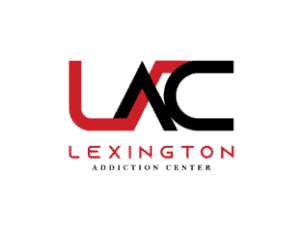
Addiction and co-occurring disorders don’t have to control your life. Lexington Addiction Center is waiting with open arms to give you the tools necessary for lasting change. Reach out to us today to learn more.